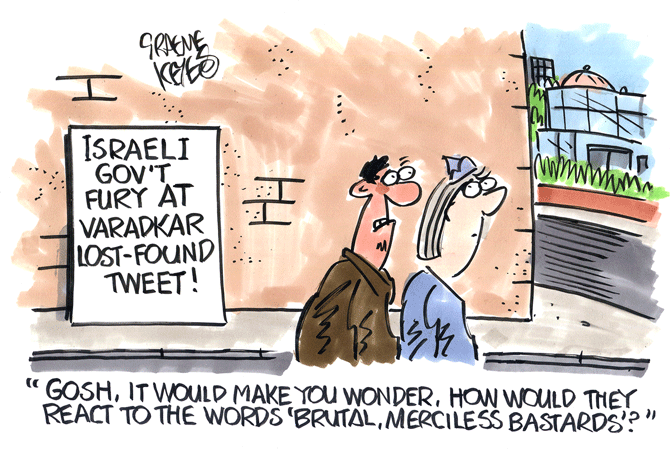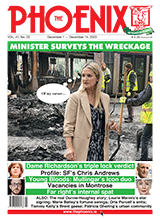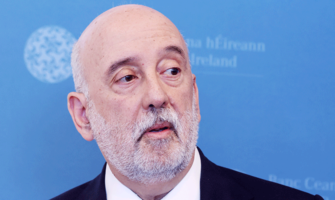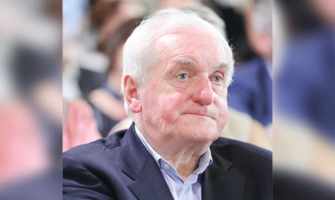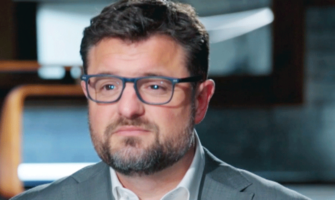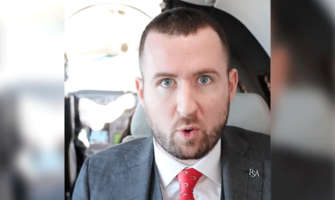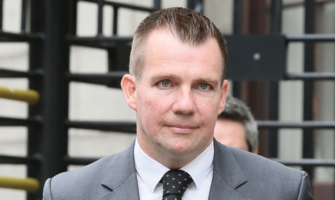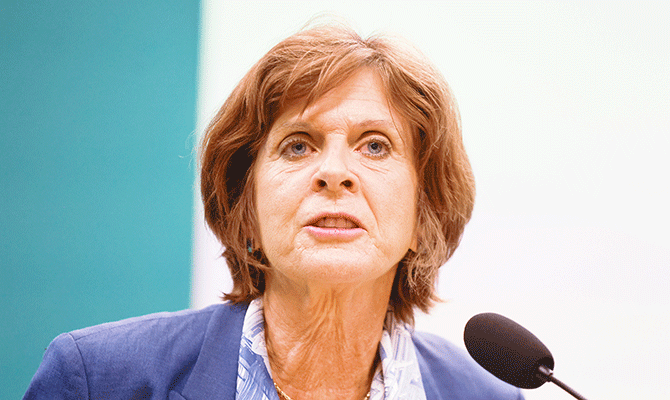
Dame Louise Richardson
ANTI-TERRORIST EXPERT Dame Louise Richardson was hand-picked by Tánaiste and foreign minister Micheál Martin, to chair his forum on defence and security policy and also to compile a report on the proceedings. However, given the furore that greeted the forum’s bias and the carefully selected speakers, even she could not in all credibility come up with a report that said neutrality should be jettisoned. But she did the next best thing, which was to recommend that the triple lock be abandoned.
This, as many observers now believe, was the intention all along as even Martin and Iveagh House mandarins knew that an open assault on Irish neutrality would be self-defeating. But ridding Ireland of the triple lock could open the door to military choices the government could take – with other entities such as Nato and the European Union battlegroups.
This is not some scaremongering cry from the far left or Sinn Féin but a considered report from Irish Times crime correspondent Conor Gallagher explaining the implications of the Government’s strategy in scrapping the triple lock to readers last week.
Dame Louise Richardson paved the way for Martin’s recent announcement in her report on the forum she chaired and in which she insisted more than once: “It is not the purpose of the report to make policy recommendations to the Government.” However, she then went on to do just that – more than once.
Despite conceding that, “while there was not a consensus on this point, the preponderance of views, especially among the experts and practitioners, is that it is time for a reconsideration of the triple lock as it is no longer fit for purpose”. She also lists it as her first of five “contested” areas in the report’s executive summary, stating baldly: “The Triple Lock: the prevailing view is that it should be reconsidered.”
Interestingly, the forum discussion – by those ‘experts and practitioners’ – focused on what might replace an endorsement by the UN, as required under the triple lock. A fascinating proposal came from one expert, who referred to the EU as a potential provider of “external validation” for any foreign military adventures triggered by armchair generals in Iveagh House.
Also interesting is the Government’s rapid move to increase the pay for troops that volunteer – or are “mandatorily selected for service” – for an EU battlegroup due to start training in the new year. That less than 20% of Irish troops required to serve in the German-led battlegroup have volunteered is an embarrassment to the militarist neophytes in the Defence Forces and Government. The new battlegroup is larger and will be better trained than previous iterations of what is definitely not an EU armed force at all.
Former Green Party activist Carol Fox wrote to the Irish Times last summer pointing out that smaller EU battlegroups already exist but had never been deployed due to the need for EU unanimity. She also noted that Martin had said last May that the Government was now “very open” to moving away from the veto on certain foreign policy and defence issues.
In short, moves at the forum, spearheaded by Dame Louise Richardson, and developments in EU foreign and defence policy indicate that even though concerted efforts to shift the consensus on Irish neutrality could not be budged a centimetre just yet, the scrapping of the triple lock is a key move, from Ireland’s point of view, in the creation of an EU defence force. And remember, enhanced and larger battlegroups do not an army make in the Orwellian world of EU military make believe.
